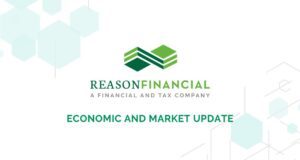Belief #1Intellectual rigor, discipline, patience and faith in the future matter.
Staying the course when your emotions are trying to overcome your logical thoughts and reasoning abilities and not letting fear overshadow your vision of your future are essential in helping you make wise investment decisions.
Belief #2Diversification, asset allocation and efficiency are separate and distinct concepts
Diversification aims to reduce business-specific risk by abiding by the “don’t put all of your eggs in one basket” adage.
Belief #3Asset allocation builds on that by looking at security or investment risks in the context of a broad portfolio rather than in isolation.
Efficiency produces the best possible asset allocation, given an investor’s unique risk tolerance.
Asset allocation does not ensure a profit or protect against loss.
Asset allocation does not ensure a profit or protect against loss.
Belief #4Asset allocation matters more than product selection.
Asset allocation decisions can account for the most significant return variation. Thus, an investor should leverage a dedicated financial advisor to help design and select proper asset allocation prior to considering active portfolio management.
Asset allocation does not ensure a profit or protect against loss.
Asset allocation does not ensure a profit or protect against loss.
Belief #5Disciplined and automated rebalancing improves results.
Rebalancing strategies are designed to realign a portfolio back to its initially established parameters and help control the emotional tendencies of investors to buy high and sell low.
Rebalancing a portfolio may cause investors to incur tax liabilities and/or transaction costs and does not assure a profit or protect against a loss.
Rebalancing a portfolio may cause investors to incur tax liabilities and/or transaction costs and does not assure a profit or protect against a loss.
Belief #6Minimizing losses improves the compounding power of wealth. `
The principle of compounding returns is one of the most powerful yet least-appreciated forces in investing. Long-term perspective and purpose maximize the “force multiplier” effects of compounding.
Belief #7Investing in stocks has rewarded investors over the long term.
Though past performance makes no guarantee of the results we will see in the future, U.S. stocks have historically rebounded after periods of negative performance.
Stock investing includes risks, including fluctuating prices and loss of principal.
Stock investing includes risks, including fluctuating prices and loss of principal.
Belief #8Emotions influence investor behavior.
Various cycles in the market cause fears or hopes, impacting the buying and selling of equity funds.
Belief #9Market timing does not work over the long term.
Forecasting systematic risk factors is extremely difficult, and successfully timing the market is not probable, consistent over long periods or proven through research. Predicting the future is fraught with great uncertainty. While no one can predict the future accurately, that does not always stop one from mistakenly believing they know more than others about what’s to come. However, events that will impact the future are not known, so there will always be lack of certainty about the future ahead of us.
Belief #10Skillful managers can be identified.
A disciplined process with quantitative and qualitative considerations ultimately helps to determine which individuals are best suited to serve as portfolio managers for clients.
Belief #11Listening and providing advice are critical to guiding investors.
The most effective wealth management professionals know that they must listen carefully to their clients in order to fully understand the promises they want to keep for their loved ones and to provide comprehensive and competent plans for action.




